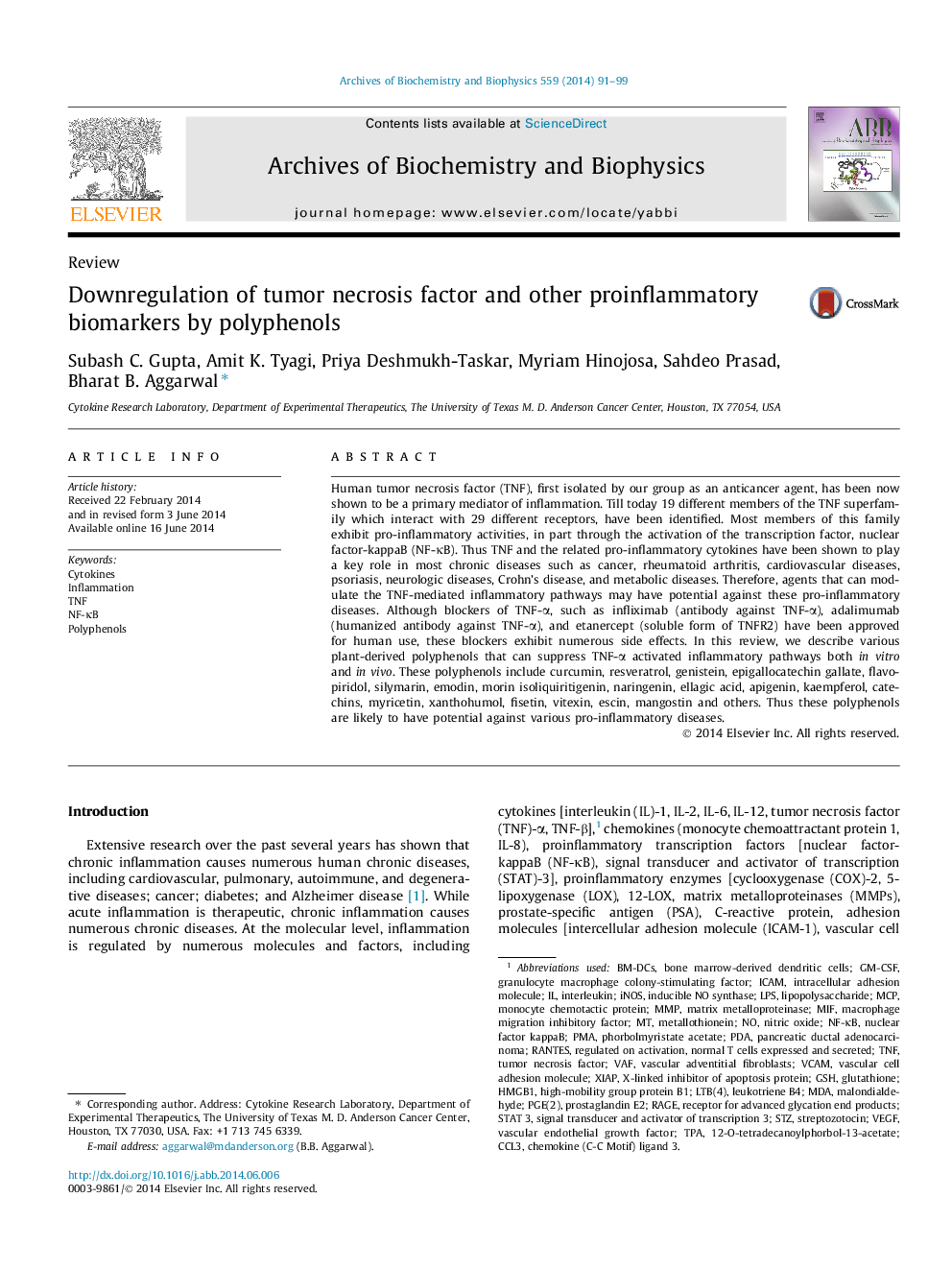| کد مقاله | کد نشریه | سال انتشار | مقاله انگلیسی | نسخه تمام متن |
|---|---|---|---|---|
| 1925134 | 1536343 | 2014 | 9 صفحه PDF | دانلود رایگان |
• TNF-α is one of the major mediators of inflammation.
• TNF activates inflammatory pathways through activation of nuclear factor (NF)-κB.
• Plant-based polyphenols suppress TNF-activated NF-κB pathway.
• Polyphenols have been shown to modulate inflammatory pathways.
• Polyphenols have a potential in prevention of chronic diseases.
Human tumor necrosis factor (TNF), first isolated by our group as an anticancer agent, has been now shown to be a primary mediator of inflammation. Till today 19 different members of the TNF superfamily which interact with 29 different receptors, have been identified. Most members of this family exhibit pro-inflammatory activities, in part through the activation of the transcription factor, nuclear factor-kappaB (NF-κB). Thus TNF and the related pro-inflammatory cytokines have been shown to play a key role in most chronic diseases such as cancer, rheumatoid arthritis, cardiovascular diseases, psoriasis, neurologic diseases, Crohn’s disease, and metabolic diseases. Therefore, agents that can modulate the TNF-mediated inflammatory pathways may have potential against these pro-inflammatory diseases. Although blockers of TNF-α, such as infliximab (antibody against TNF-α), adalimumab (humanized antibody against TNF-α), and etanercept (soluble form of TNFR2) have been approved for human use, these blockers exhibit numerous side effects. In this review, we describe various plant-derived polyphenols that can suppress TNF-α activated inflammatory pathways both in vitro and in vivo. These polyphenols include curcumin, resveratrol, genistein, epigallocatechin gallate, flavopiridol, silymarin, emodin, morin isoliquiritigenin, naringenin, ellagic acid, apigenin, kaempferol, catechins, myricetin, xanthohumol, fisetin, vitexin, escin, mangostin and others. Thus these polyphenols are likely to have potential against various pro-inflammatory diseases.
Journal: Archives of Biochemistry and Biophysics - Volume 559, 1 October 2014, Pages 91–99
